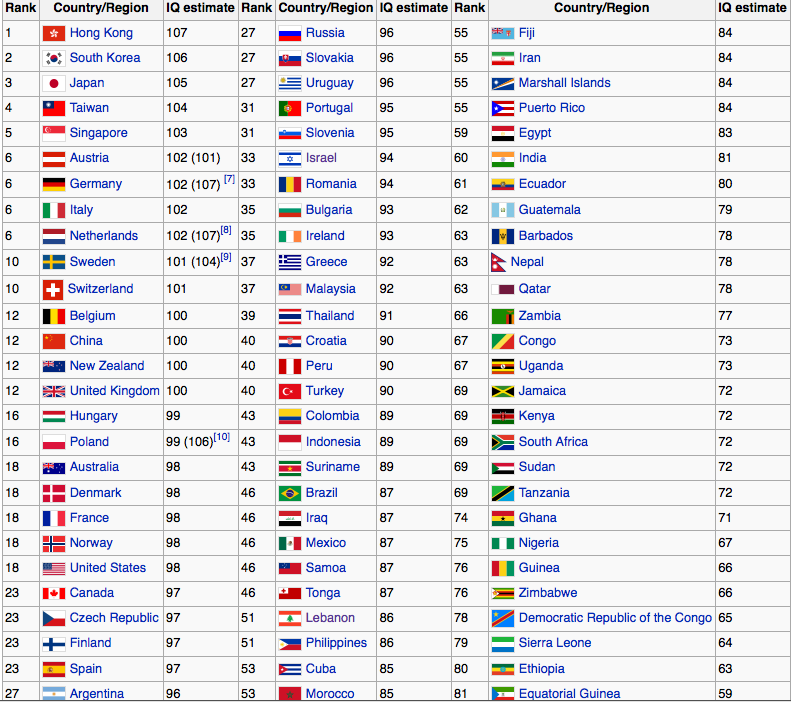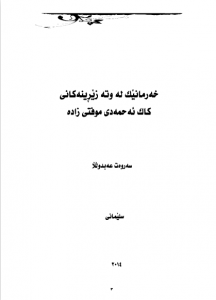In the Footsteps of the Prophet is a long-needed biography of the Prophet Muhammad ﷺ that focuses on his character, manners and experience, rather than merely narrating dates and facts.
Many classical Islamic books are somewhat out-of-touch for modern readers, so that while they may have been satisfactory to their original (often Middle Eastern) readers, when translated into English they end up being unapproachable and highly inadequate, often leading to more questions than answers. In the Footsteps of the Prophet, having been written by someone who lives and breathes the Western worldview, lacks these shortcomings, so that I can refer Europeans to it without having to make apologies for it.
On embracing faith
Ramadan writes:
From the outset, the Quran presents itself as the mirror of the universe. The term that the first Western translators rendered as “verse”-referring to biblical vocabulary-literally means, in Arabic, “sign” (ayah). Thus, the revealed Book, the written text, is made up of signs (ayat) just as the universe, like a text spread out before our eyes, is teeming with signs. When the heart’s intelligence, and not only analytical intelligence, reads the Quran and the world, then the two texts address and echo each other, and each of them speaks of the other and of the One. The signs remind us of what it means to be born, to live, to think, to feel, and to die.
His writing style creates vague clouds of meanings and feelings, and it is often left as an exercise to the reader to make out anything concrete from what he says. This is very much unlike my own style, but perhaps there is a demographic that finds better meaning in his. What he is saying above is that the Quran provides various pointers (rather than conclusive proofs) of the Creator’s existence and presence, and the universe around us also provides its own pointers (rather than conclusive proofs). When you bring together the total of the Quran’s pointers and the universe’s pointers, your conscience (what he refers to as your heart’s intelligence) is offered the very difficult choice of accepting faith or rejecting it.
When you run into sufficient ayat in yourself, in the world around you, and in the Quran, you reach a point where non-submission to the Creator becomes a sin against your conscience. This is the sin of kufr (disbelief), of denying God’s signs and/or favors.
Throughout your life, your conscience is like a jury watching a trial that tries to decide whether God exists or not. Sign after sign is presented to your conscience, never sufficient to conclusively prove to your rational brain that God exists, but never so little that you can deny those signs in good conscience. Once you have seen sufficient signs, you will feel guilty to deny God, because you have done something that goes against your conscience. Even if you can rationally justify your rejection of God, the guilt may never leave.
As for someone who has never seen sufficient signs, that is a different matter.
The super-humanity or not of the Prophet ﷺ
Ramadan embraces the idea that there was something special (super-human) about the Prophet ﷺ, narrating a few stories like the angels visiting him when he was a child and performing surgery on him to remove a black piece of flesh from his heart, in this way purifying him from something bad that other human hearts supposedly contain. The Egyptian scholar Muhammad al-Ghazali in his Fiqh al-Sīra rejects this story, saying that good and evil are a matter of the spirit, not the flesh.
The story is problematic because it suggests there is some inherently evil within humans, embedded right in their flesh, reminiscent of the Christian concept of original sin. This story is just one example of the myriad stories in books of sīra (biographies of the Prophet ﷺ) suggesting that the Prophet ﷺ was special, something more than human. The Christians turned Jesus into God, and Muslims would probably have done the same, out of love and a desire for a human divinity that wasn’t so terrifying as God, if the Quran wasn’t so insistent that God has no associates and wasn’t so critical of the idea of Jesus as a Son of God.
While we may not be able to conclusively say that there is was nothing specially super-human about the Prophet ﷺ, a truly human Prophet is far more admirable than a super-human Prophet in reality. What’s so special about bearing a burden if you are given super-powers by God to bear it? And resisting evil while desiring it is a greater accomplishment, as in the case of Prophet Yusuf (biblical Joseph), than resisting it after God sends angels to perform surgery on you to make you a better person.
The beautiful story the Quran tells us is that the Prophet was a human just like any of us, and that he was given a terribly difficult mission that terrified him. He had to bear this burden with all of his fears and weaknesses, he had to face humiliation after humiliation among his relatives and tribe, and he had to face death on numerous occasions, not as a super-man who couldn’t be harmed, but as a fragile human who could suffer, who could fear, who could desire, who could be impatient, who could make terrible mistakes.
Say, “I am nothing more than a human being like you, being inspired that your god is One God. Whoever hopes to meet his Lord, let him work righteousness, and never associate anyone with the service of his Lord.” (The Quran 18:110)
God did not tell the Prophet to say, “All humans are equal, but I am more equal than you.” He is told to say “I am nothing more than a human being”. That is it. There is no need to turn him into a super-man and in this way take away his achievements as a human.
In the Footsteps of the Prophet contains only a few such stories, which makes it superior to other books of sīra.
Aisha
Sufficient evidence is not presented to show why the relationship between Aisha and the Prophet was special and exemplary, a claim that the book makes in multiple places. The issue of Aisha’s age is not addressed, and for someone who has this in mind while reading the relevant passages, nothing presented sufficiently justifies things (see my article here for the views of the latest scholars who say that there is good evidence that Aisha was close to 18 at the time of her marriage). He mentions that the Prophet ﷺ “stayed away” from Aisha for a month after she was accused of adultery, then mentions that this event “reinforced their love and trust”. But this claim is not convincing when no evidence is presented for it, and in fact evidence is provided that it harmed their relationship.
The very important spiritual side of this matter is not mentioned. This was an intensely difficult lesson for the Prophet ﷺ, for he had not received guidance on what to do in the case of someone being accused without evidence being presented. Since the person accused was his own wife, and since he had no specific guidance on the matter, he could do nothing but suffer. He did not dare interact with his wife, not knowing whether her status as his wife was valid anymore.
Mentioning these facts would have shown that his abandoning her for a month was not an him throwing away his wife until she was proven innocent, as it would appear to a critical reader. Both in this book and Karen Armstrong’s Muhammad: A Prophet for Our Time, the focus on the Prophet’s persona and his sociopolitical status sometimes causes the fact of his servitude toward God to be neglected. In the issue of Aisha’s accusation, he was a helpless servant of God, not knowing what to do to please Him.
Later it is mentioned that Aisha remained upset with the fact that the Prophet had doubted her chastity. Her mother asks her to thank the Prophet ﷺ for forgiving her and taking her back, but she says she will only thank God, since the Prophet ﷺ had doubted her. This, while seemingly a negative fact, is a good illustration of the fact that she maintained her independence of mind and did not act as an intellectual slave to her husband, but considered him a human that could be challenged.
Sufficient justification for the war on Khaybar is not mentioned: the fact that it continuously sought to pay Arab tribes to go to war with the Muslims, hoping to remain the supreme Jewish power over the gentiles of Arabia, the way Israel today hopes to remain the supreme Jewish power over the gentiles of the Middle East, and using one group of gentiles to do their dirty work for them against another group while they themselves remained safe in their fortresses, the way today they get Christians to fund and fight Israel’s wars for them.
The Prophet’s manners
As mentioned, the book approaches the Prophet ﷺ as a human to be understood and emulated, and many examples are shown of his immense kindness, tolerance and civility toward both his followers and his sworn enemies. While on the whole the image of the Prophet ﷺ presented by the book is believable, there are also passages like the following which appear to insert too much of the author’s own reading into the character of Prophet ﷺ:
The Messenger, moreover, drew from children his sense of play and innocence; from them he learned to look at people and the world around him with wonder. From watching children experience beauty he also more fully developed his sense of aesthetics: in front of beauty, he wept, he was moved, he sometimes sobbed, and he was often filled with well-being by the poetic musicality of a phrase or by the spiritual call of a verse offered by the Most Generous, the Infinitely Beautiful.
It would have helped if these characteristics were backed by concrete examples. We have no evidence that this is not merely how Ramadan wishes the Prophet ﷺ to have been.
Conclusion
In the Footsteps of the Prophet is a book I would recommend to anyone wanting to get something of an accurate view of Islam’s founder, a view that is neither harshly critical or fawningly uncritical piece of marketing. It shows the Prophet ﷺ as those who know the most about him see him, and I cannot give it a higher praise than this.
A non-Muslim may naturally be skeptical of a book, written by a Muslim, that offers such a seemingly charitable glimpse of the Prophet. Muslims have everything to gain if non-Muslims see the founder of their religion in a more friendly light. To that I will say that this is the Prophet ﷺ as Muslims see him. There are no dark secrets. If someone says that the Prophet said or did something horrible, we reject it. The Prophet’s character, as his wife Aisha said, “was the Quran”. We think of the Prophet as a follower of the Quran, someone who did his utmost to embody its teachings, and if someone makes a claim about the Prophet that is highly out of character for him as a person who lived and breathed the Quran, then we reject that claim regardless of where it comes from.
This is a simple matter of giving weight to more reliable evidence (the Quran) over less reliable evidence (hadith). If the more reliable evidence gives you one view of the Prophet, and the less reliable evidence gives you another one, if you are a rational human, you will prefer the view arrived at through the more reliable evidence, and this is what we Muslims do, and this is what In the Footsteps of the Prophet does. Those who have an ax to grind against Islam ignore the reliable evidence and waste their time building an alternate-reality version of the Prophet ﷺ based on less reliable evidence, a version of the Prophet that goes entirely against the Quranic view. What they say about the Prophet, therefore, is automatically rejected, since they intentionally ignore the most important evidence (the Quran) and instead focus on secondary evidence that confirm their preconceived biases.
A fair-minded person should therefore see that what In the Footsteps of the Prophet does is exactly what we Muslims do in trying to arrive at an accurate understanding of the Prophet ﷺ; we use the canonical, Quranic view to make sense of a world of secondary evidence of varying authenticity to reach a good enough understanding of the Prophet’s mind and character.


